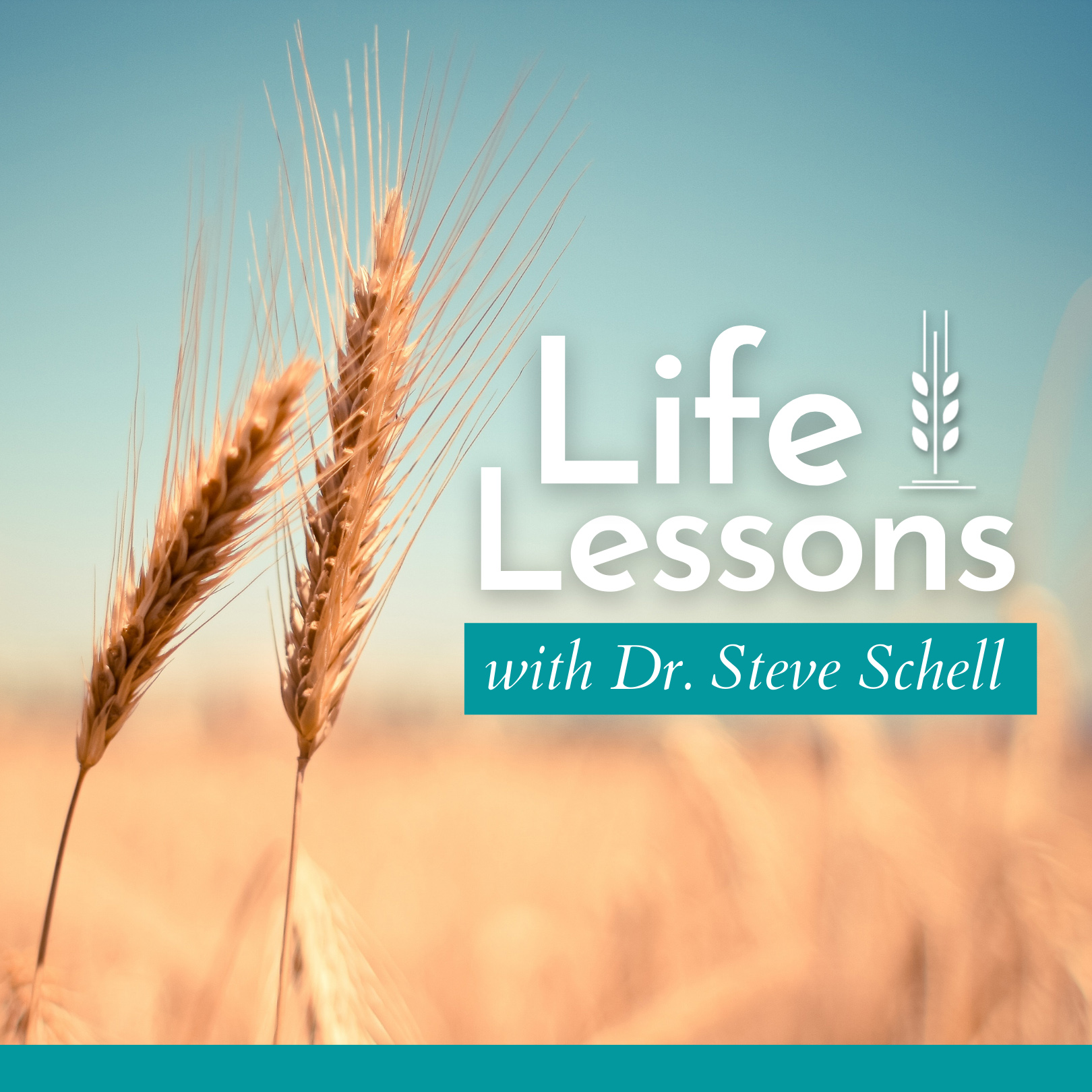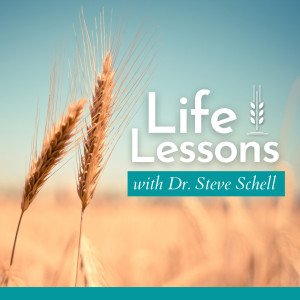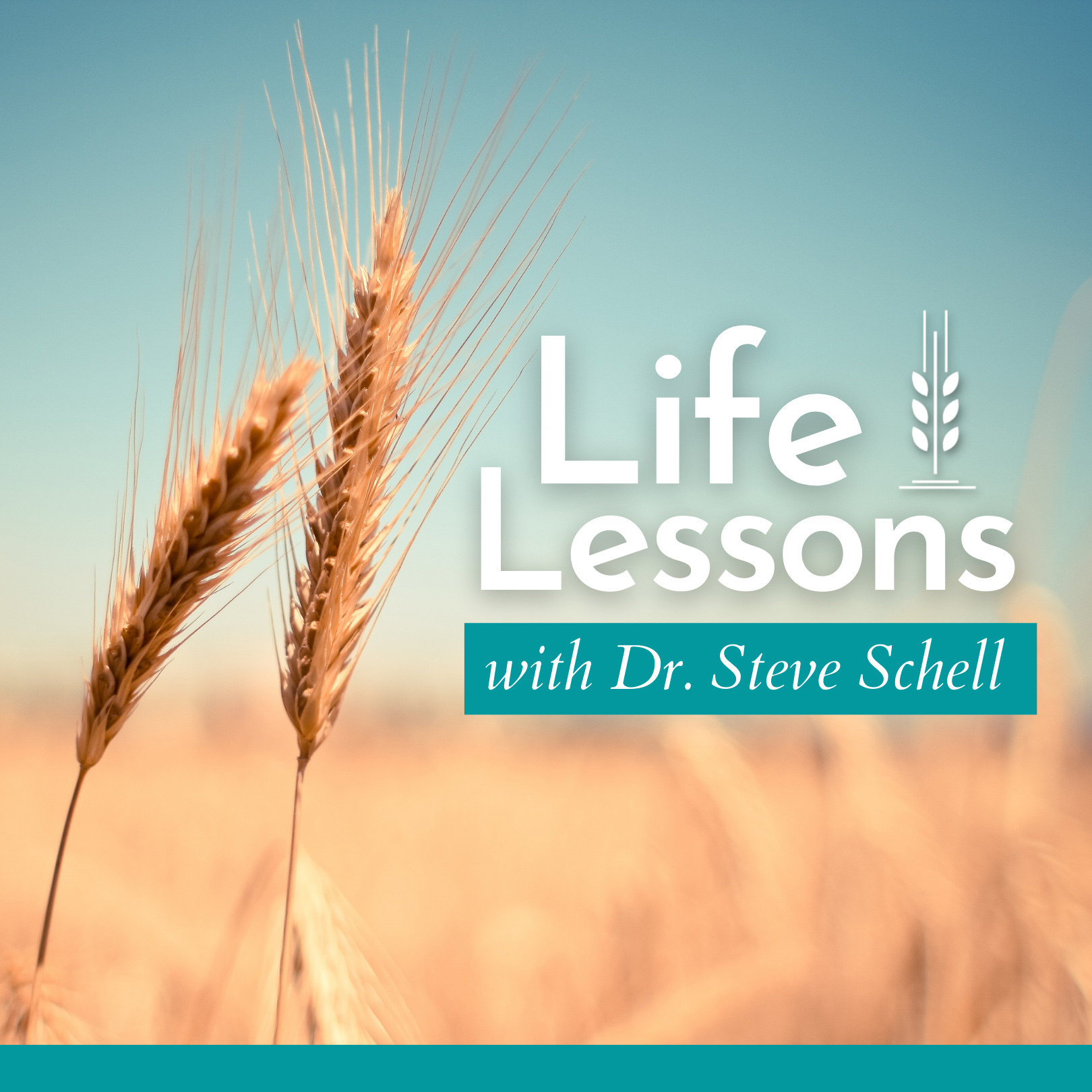
147.3K
Downloads
499
Episodes
Pastor Steve Schell comprehensively teaches through entire books of the Bible pulling out the deep, eternal truths in each section of Scripture without skipping over challenging passages. These sermons will help foster true discipleship for the committed Christian, both young and old.
Pastor Steve Schell comprehensively teaches through entire books of the Bible pulling out the deep, eternal truths in each section of Scripture without skipping over challenging passages. These sermons will help foster true discipleship for the committed Christian, both young and old.
Episodes

Thursday May 25, 2023
33 - Attitudes That Kill
Thursday May 25, 2023
Thursday May 25, 2023
The Lord needed only two words to produce the sixth commandment. He engraved into a flat plate of stone this simple statement, “Murder not!” Out of ten words which are associated with killing in the Old Testament, He chose the one which refers specifically to the killing of a human whether that person’s death is intentional (murder) or accidental (manslaughter). He did not use a word that would include hunting, lawful execution or a morally-justifiable war. He picked the word that would deny us the right to end a human life, including our own. Since human life originated with God it belongs to Him and therefore only He can decide who should live and who should die. This means that eliminating people is not an acceptable solution to our problems. Though it’s possible for a person to do something so evil that their execution is called for by God’s Word (Nu 35:29–34), yet the power to decide this is given only to duly established courts who are to be guided through the process by biblical principles. So the effect of this commandment is to force us to seek positive ways of resolving conflicts with others. If we understand the true spirit of this commandment, we realize God is forcing us to learn to love sinful people just like He does.

Monday May 22, 2023
32 - Honoring Parents
Monday May 22, 2023
Monday May 22, 2023
It’s interesting that the first lesson on learning to love my neighbor as myself has to do with honoring those God has placed in authority over me as a child. And then He bundled into this commandment a warning that says my life expectancy, the availability of His resources and my progress toward achieving His plan for my life are contingent upon my obedience here. This is not easy for me to hear as a typical American. I live in a culture that viciously criticizes and ridicules its leaders, that avoids the elderly and suspects that submission is a scheme invented by people who merely want to exploit me. Once again I am confronted with the fact that the way God thinks and the way my society thinks are vastly different. But if the Bible is really God’s Word and He means what He says, I could release some powerful blessings into my life by learning what it means to “honor my father and mother,” so let’s look more closely.

Thursday May 18, 2023
31 - The Sabbath Principle
Thursday May 18, 2023
Thursday May 18, 2023
So far in our study of the Ten Commandments we first learned that God will not allow other gods in our lives. He forces us to choose whether we want His blessing or the help these other spirits can give. Next, we learned that He measures our love for Him in part by the way we speak of Him. We trouble our lives when we profane His name. If, at times, we feel the need to say something emphatic we’d be wise to leave references to Him out of our statements. Instead we should always seek to glorify the name of the Lord we love.
Now we turn to the fourth commandment which says, “remember the sabbath day to keep it holy.” The “sabbath” is a much misunderstood concept in the church today. Certain groups have tried to reimpose a legalistic view and argue over which day of the week Christians must go to church, while others have decided the grace given to us in Jesus Christ means we have no obligation to give any day of the week to God. But clearly neither extreme takes seriously the truth Jesus revealed when He said, “The sabbath was made for man and not man for the sabbath” (Mk 2:27). His statement tells us God gave the sabbath as an act of kindness because He knew we would need it. He didn’t intend to set up a ritual in order to receive glory from our obedience to an arbitrary set of rules. He knew we would need a day of rest and knew it would help us learn to love Him.

Monday May 15, 2023
30 - Using God’s Name
Monday May 15, 2023
Monday May 15, 2023
Our mouths expose our hearts. Sooner or later our real beliefs and attitudes pour out of our lips. As hard as we may try to hide them it’s impossible to filter everything, and in those moments when we drop our guard our hearts speak what we really believe. That’s why in these lessons on how to love God (Ex 20:3–11) He draws our attention to how we use His name. His purpose isn’t simply to get us to patrol our speech more carefully, His concern lies much deeper than that. He wants us to love and respect Him and knows that if we do our mouths will speak accordingly. Jesus said, “For the mouth speaks out of that which fills the heart” (Mt 12:34), and again on another occasion He said, “But the things that proceed out of the mouth come from the heart” (Mt 15:18). So an honest evaluation of how we use God’s name will tell us a lot about our spiritual health.
Today we’ll listen to the warning God gives about using His name in vain, but we’ll also look at the positive side of using His name. After all, as Christians we are people deeply associated with that name: we believe in His name, we pray in His name, we gather in His name, we serve in His name and we have been baptized in His name. Amazingly, we have been given the privilege to use “the name which is above every name…” (Php 2:9).

Thursday May 11, 2023
29 - No Other Gods
Thursday May 11, 2023
Thursday May 11, 2023
We learned in our study of the “law of Moses” that the purpose of the Ten Commandments is to teach us how to love: first, to love God with all our heart, soul & might (Dt 6:5), and then to love our neighbor as ourselves (Lev 19:18). Considering these commandments as a whole, we see that the first four focus on loving God, and the final six focus on loving our neighbor. Today, we’re going to look more deeply at the first two: 1) You shall have no other gods before Me (v 3); 2) You shall not make for yourself an idol (v 4).
In order to understand them better, it’s helpful to paraphrase verses 1–11. God’s message in these verses is this: “I have already proved My love for you, My power, and My faithfulness by delivering you from Egypt and bringing you safely here. Now I’m asking you to ‘marry Me,’ that is, to love Me, to be loyal to Me, to treat Me respectfully, and to regularly spend time in personal fellowship with Me. I warn you, if you promise to do so and then don’t, I’ll react like a wounded spouse and I’ll punish you until you repent. But if you continue to love Me, be loyal to Me, show Me respect and fellowship with Me, I’ll pour on you the blessings I promised generation after generation until the end of time.” When we realize what God is saying in these verses, it is amazing how tender and vulnerable He was being toward Israel. Really He should never have had to say these things in the first place, because if people really love Him they would be automatic.

Monday May 08, 2023
28 - The Law of Moses
Monday May 08, 2023
Monday May 08, 2023
The Law of Moses was the code of rules and regulations which Israel agreed to live by as people in covenant with God. Moses didn’t invent these laws, he just wrote them down as God dictated them to him. And the “heart” of these laws is the Ten Commandments which the Lord Himself wrote down on two flat tablets of stone (24:12; 31:18; 32:15, 16; 34:1–4, 28). He gave Israel these laws so they would know how to lead holy lives, and therefore God’s presence could dwell among them. His goal was to use their nation to evangelize all the other nations on earth (19:6). But, for the most part, things didn’t work out as He intended. People either ignored His laws, or looked for excuses to avoid obeying them, or used them to put others under a form of religious slavery, or tried to earn eternal life by practicing a superficial level of obedience. Of course none of these was the reason God gave His laws in the first place. But misunderstanding and misusing His laws didn’t necessarily end with the arrival of Christianity. Sadly some still misunderstand and misuse them. So today we’ll let the Apostle Paul explain why God gave the Law to Moses and how He wants to use that law in our lives. As we listen to him we’ll hear the good news of the gospel in a fresh way.

Thursday May 04, 2023
27 - The Holiness of God
Thursday May 04, 2023
Thursday May 04, 2023
The word “holy” is a strange word. It’s a word we use all the time in our worship songs and repeatedly ascribe to God, yet if asked to define the word, few would know what to say. We know it’s a good thing and that it applies to God. We may even be aware the Bible says it can apply to us as well, but again, we’re not sure what difference that makes in our lives. Today we’ll investigate this wonderful word starting by looking at a display of God’s holiness on Mount Sinai. In this study we’ll define holiness (and also glory); we’ll discover its powerful effects on different kinds of people; and finally we’ll see what it means that Jesus Christ is willing to share His holiness with us.

Monday May 01, 2023
26 - The Jethro Principle
Monday May 01, 2023
Monday May 01, 2023
The kingdom of God is all about bringing lost people back to the God who loves them. Those of us who love God know this about Him: He’s always reaching out to save more people and wants us to help Him do it. And to Him it’s always an urgent matter because He sees the eternal destiny of people. To be successful He needs to be constantly producing spiritual leaders because without enough leaders His kingdom can’t keep growing (Lk 10:2). In today’s lesson we watch as God teaches Moses how to prepare for the explosive growth of the nation of Israel. They would certainly grow by producing more children, but God hoped they would also grow by evangelism. His plans for them were that they would become a “kingdom of priests and a holy nation” (19:6) proclaiming the true God to a world that worshipped idols. The principles Jethro taught Moses still work today and if we have God’s expansive heart in us we need to learn these practical lessons and make a serious choice to let God turn us into leaders who will care for the multitudes He wants to save.

Thursday Apr 27, 2023
25 - Never Fight Alone
Thursday Apr 27, 2023
Thursday Apr 27, 2023
No sooner had rivers of water flowed out of the rock at Rephidim than Israel experienced a vicious, unprovoked attack. The Amalekites were distant relatives (Ge 36:12) and therefore should have welcomed the news that Jacob’s descendants had been freed from slavery in Egypt, but instead they sent an army to attack when Israel was “faint and weary” (Dt 25:18). In fact, the Amalekite soldiers deliberately targeted the young, elderly and infirm who walked slowly at the end of the procession. They showed neither mercy for their weakness nor a fear of God who visibly preceded the nation in the cloud and fire, slashing through the stragglers like sharks through a school of fish. When darkness fell, Moses had a chance to regroup and develop a battle strategy. He knew they would be hopelessly overpowered without God’s intervention. So instead of leading his men in battle Moses gave that job to Joshua and committed himself to fight in prayer. And the picture of him standing on that hilltop with his hands in the air from morning till night has inspired believers to fervent prayer ever since. His example at Rephidim teaches us important lessons about how to win when we fight spiritual battles.

Monday Apr 24, 2023
24 - Living Water
Monday Apr 24, 2023
Monday Apr 24, 2023
Jesus Christ did not simply die to forgive our sins. If that were all He did we would still have a wonderful gift for which we would be eternally grateful. But when we believe in Him we also receive another gift. It is the gift of the Holy Spirit who, because we have been made holy by our faith in Jesus, can join Himself to us forever. Not only are Christians forgiven but we are also filled and that makes the good news of the gospel even better. Jesus gives dry, thirsty people “rivers of living water” meaning we have an unlimited supply of God’s presence always available to us. All we need to do is ask in prayer and He will refresh us with His Spirit.
Throughout Israel’s history God ordered certain events so they would prophetically point to the ministry of Jesus Christ. By doing this He was preparing their hearts and minds to recognize their Messiah when He came. The Rock which poured out rivers of water at Rephidim was one of these events. It is a powerful illustration of the crucifixion of our Lord. But it also challenges us to remember the other gift Jesus has given us—the Holy Spirit whose limitless presence in us opens the door to a brand new life.
